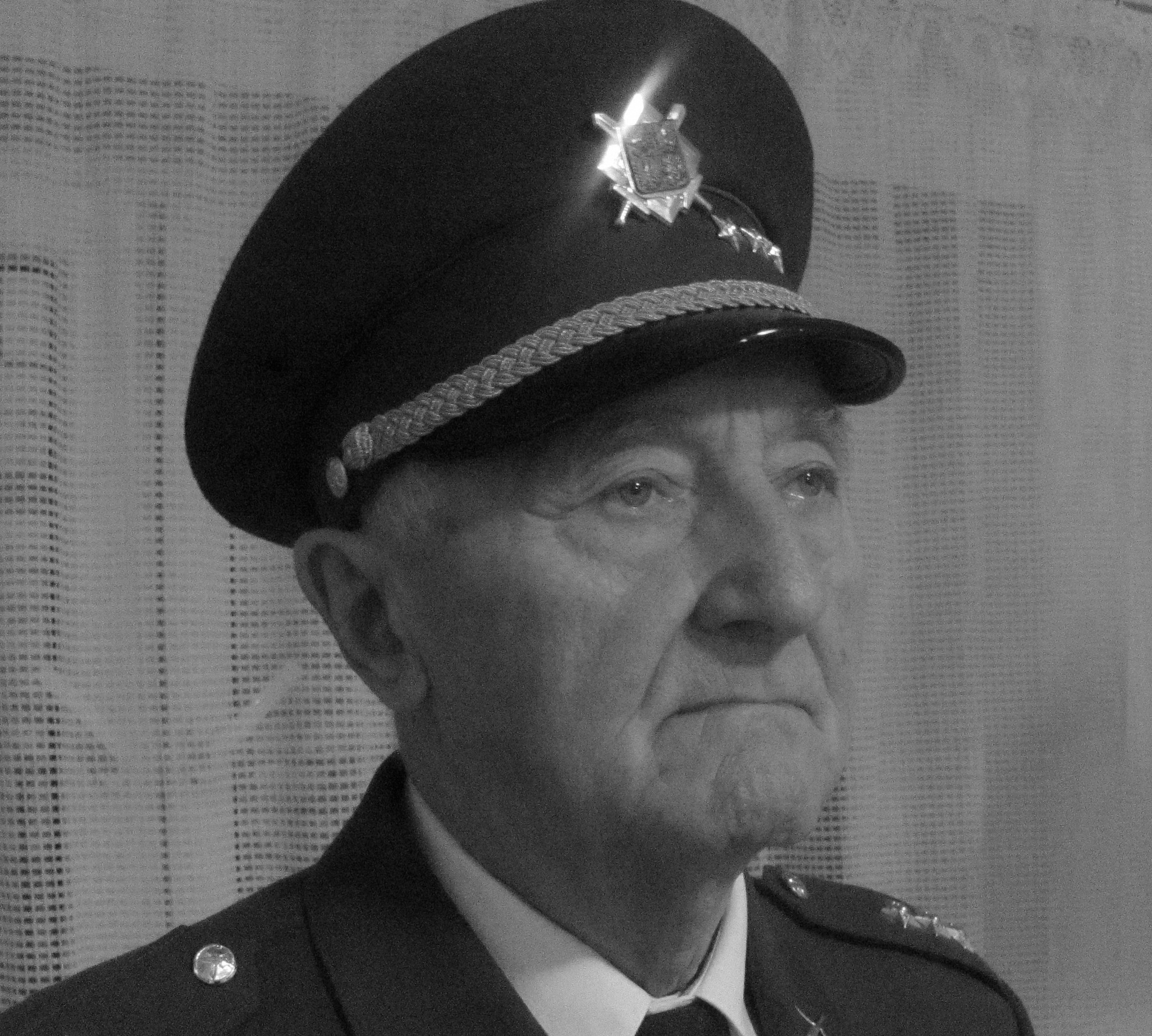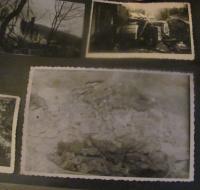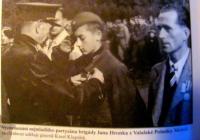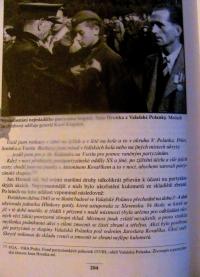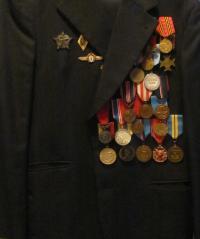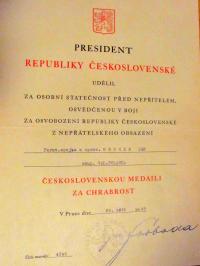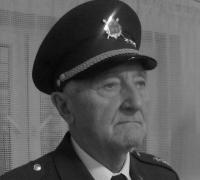„Přišla Hlinkova garda. Najednou se objevila Hlinkova garda. Asi tak rota, když to posuzuju. Sto, sto patnáct vojáků. A byly tam tak tři, čtyři dny v té Volance. A měli i nějaké, nevím, nějaké to střelivo, samozřejmě, navíc, a nějaké aji ty zbraně. A to měli na voze. Oni šli pěšky. A aby to nemuseli střežit, tak to z toho vyndali. A v té škole byla taková místnost v přízemí, jak byly dívčí práce a chlapecké práce ruční, tak tam si děcka dávaly nářadí. Že byla, u každé školy byla nějaká zahrada. To se naučily děcka od semínka si vypěstovat, včelařilo se a to všecko. A tam byla taková malá místnost, nevím, třikrát tři metry nebo možná ještě menší. A tam oni si dali ty věci z toho vozu. Samozřejmě se to zamklo, to mělo jednoduchý zámek. A to mělo okýnko, takhle výš. A to okýnko šlo otevřít zvenku. A to oni nevěděli. A teď byl plán těm, těm gardistům něco vzít, nějaké ty zbraně. No tak se zrodil takový plán. No ale kdo proleze tím okýnkem? No tak nějaký kluk, že. No tak já. Tak, tak jsem to nacvičil. Doslova jsme to nacvičili. Víte, já nemám rád ,partyzánština´. My jsme opravdu měli všecko připravené, aspoň co já vím. Do ničeho se nešlo bezhlavě, že momentálně se někdo. To všecko se připravovalo. I toto. Tak za prvé, já jsem musel, měli jsme jenom ponožky, aby nebyly stopy, na dvoře, že. Musel jsem vylézt tátovi na ramena a teď jsem musel nohama tam otevřít to okno pozpátku, že, a tak dále. No, nebudu to popisovat. Tak podařilo se mi z toho vzít dva kulomety. Jeden byl na zásobník, to byl československý kulomet. Ten ZB dvacet šest nebo dvacet čtyři, jak který. Takovou plechovou schránku na ty zásobníky. To bylo těžké, protože to bylo všecko napáskované. A ten těžký kulomet, ten měl pás. Tak ty dva kulomety jsem vytáhl. Byl tam jeden samopal. A víc zbraní tam už nebylo. Takže moc toho neměli. Ale bylo tam spoustu střeliva. No jenomže střelivo. Tak já jsem byl vyzbrojený pistolí a měl jsem baterku, takovou maličkou, abych si posvítil. Tu pistoli jsem měl na to, kdyby náhodou nějak někdo tam zrovna přišel do toho skladu. Se vším se počítalo. A, a hlídalo mě pět nebo šest partyzánů. Ti byli tam rozmístění a kdyby, já jsem musel střílet, kdyby se to stalo, samozřejmě, a ten výstřel byl signál pro ně, aby oni zahájili palbu na tu budovu. Aby mě prostě umožnili se dostat ven nějakým způsobem. Tak to bylo plánované. A ještě se to udělalo v době výdeje stravy. Kdy prostě byla pravděpodobnost, že to. Tak co jsem mohl. No tak pár těch bedniček jsem tam vysoukal z toho, to nebylo, opravdu nebylo jednoduché. A ještě nějaké asi dvě nebo tři bedýnky těch ručních granátů, a už jsem nemoh. Já jsem se ještě musel, to okno bylo výš, tam nějak vytáhnout. Hlavou ven, že. Teď jsem musel, otec takhle na ramena, on mě chytil a takhle mě vysoukal. No bylo to, bylo to složité. A to se hned předávalo do té školní zahrady. Tam byla matka, ta to přebírala, přenesla to kousek přes tu zahrádku, to bylo deset, patnáct metrů, a tam zas čekali další chlapi za plotem A tak jsme ty, to prostě odvedli. A tak se to dostalo mimo, mimo to."
